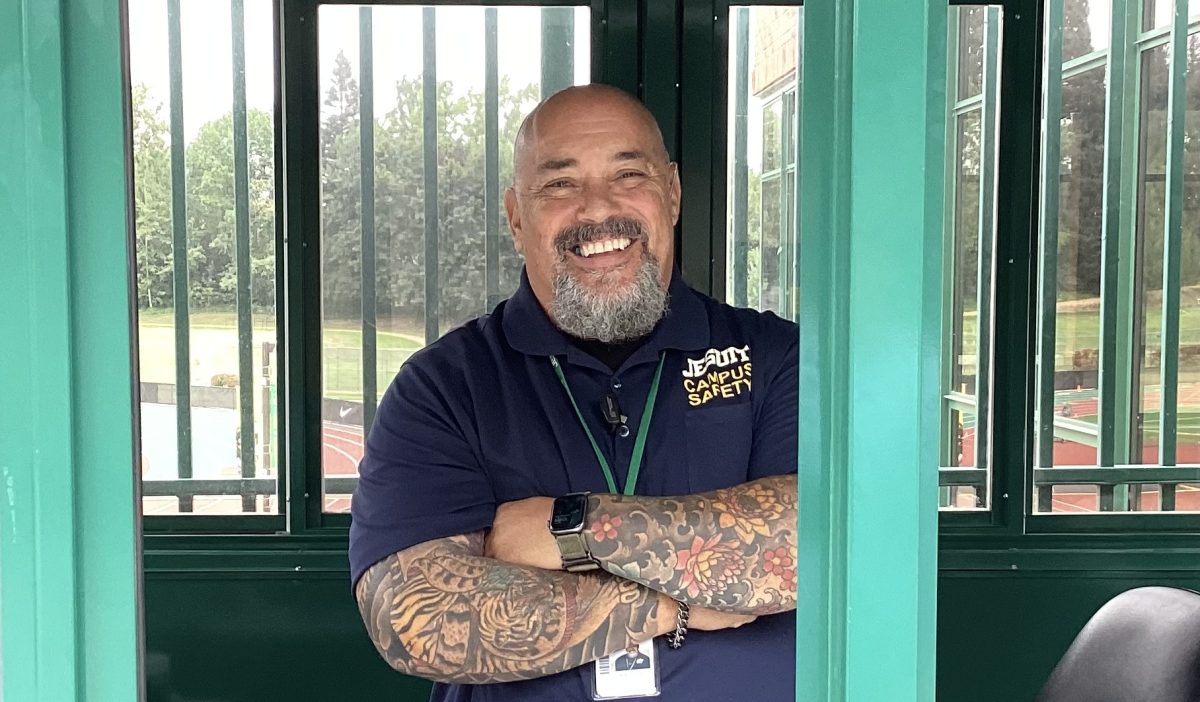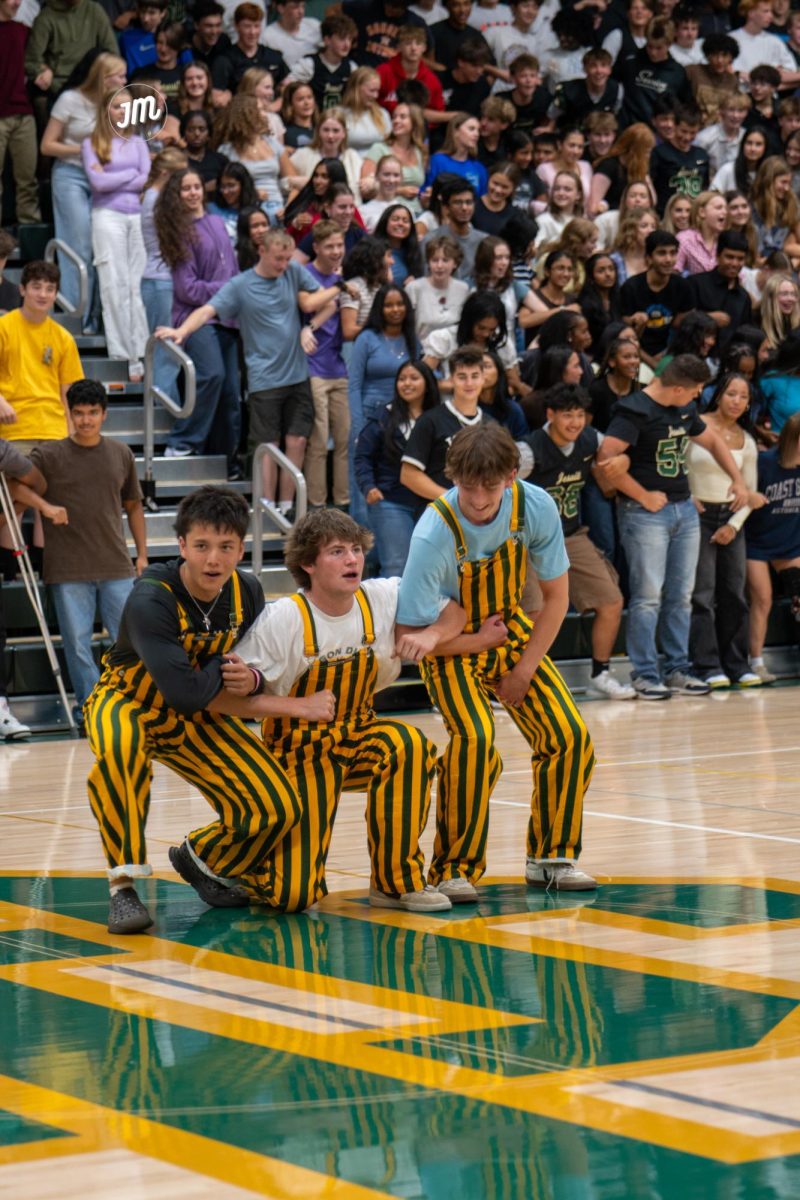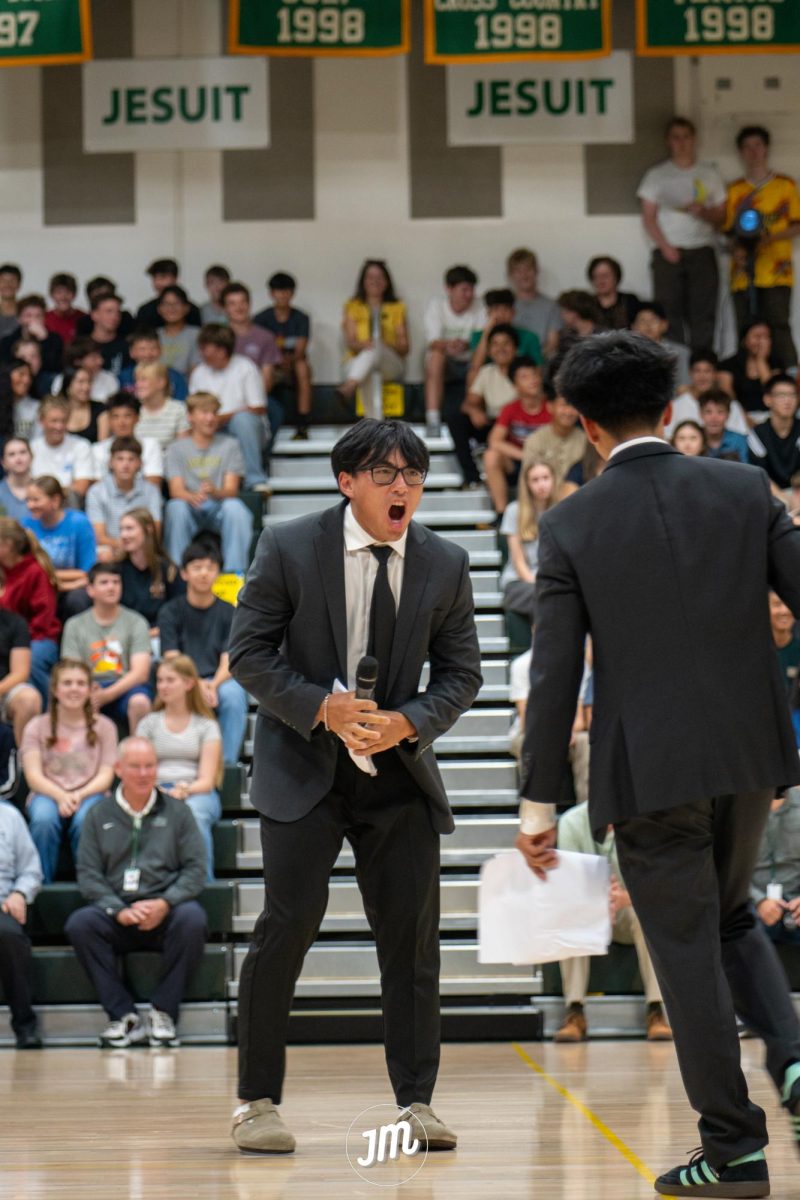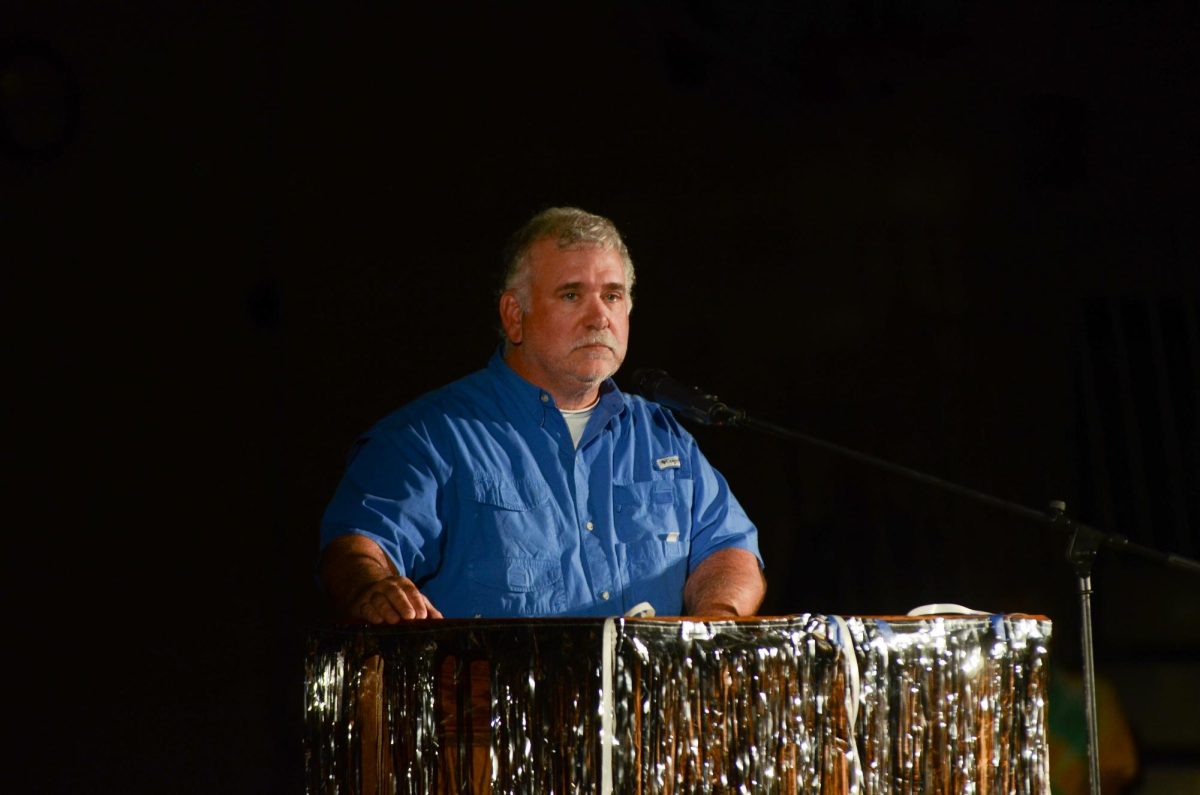Owen Sherry ‘26 said he struggled to stay alert in his classes after staying up late to finish the junior paper.
“The junior paper was a very tough time academically and I ended up staying up past 3:00 AM trying to complete it,” said Sherry.
Sherry’s story is not uncommon, as the junior paper is often viewed as the most difficult paper students will write at Jesuit.
Since 2010, Mr. Reinhardt has taught junior English along with assigning the junior paper.
“The current version of the junior paper came about when we had kind of an old guard of English teachers retiring from here between 2007 and 2010,” Reinhart said. “Each English teacher did a different type of junior paper. So depending which teacher you got, depending on how hard or how long or how extensive it might have been.”
Over a student’s four years, they will experience many rites of passage. As one of them, the junior paper is perceived as lengthy, time consuming, and stressful.
Is this the case though? Is the junior paper really that bad?
Mr. Villareal has taught at Jesuit for 15 years teaching AP English, English 1, and English 3.
“It was created so that students realize they can do hard things in a certain amount of time. They can do something hard and be proud of their work,” Villareal said.
The junior paper gives skills to high school students that are really important as they go to college and start writing essays.
“As you’re looking toward college, the junior paper gives you the ability to learn skills that are going to be repeatable,” Villareal said. “So it’s kind of handheld now and then you do these things without anyone holding your hand later on.”
Villareal said that not only does it allow for students to gain fundamental research and writing skills, it also gives them a sense of accomplishment in developing a large written project.
“But what we were striving for was consistency, that every student learns the same skills and gets a similar experience,” Reinhardt said.
There have been many evolutions of the junior paper to maximize the students’ experience and to take away as many skills with them to college than they were doing before.
The English department strives to give students an idea of what college writing is like and what they should expect from it. The purpose for the junior paper from a teachers standpoint is that if a student doesn’t get a basic understanding of the needs for essays in college, then it will be harder to write.
“It’s to teach you how to think about something for a length of time with a lot of moving resources. It is about writing to organize your thoughts, but it’s also about controlling a lot of information and then synthesizing it through your thinking to give it to a reader that would understand,” Reinahardt said.
Giving students the experience of intensive research about a topic for a paper makes it easier so they don’t get blindsided in college.
“I think that 11th grade students need that experience with research. You need to experience the messiness of research, and the struggle of research,” Villareal said.
Writing this paper in the structured environment of high school gives students the opportunity to learn from their mistakes and build off them to make a better paper.
“I think it can be the most challenging thing that they do up to this point in their career. We have a difficult project like this, and we learn the necessary skills to work through a project like this before you go out to college, so you get blindsided when you get your first paper,” Reinhardt said.
Reinhardt thinks as a student grows and matures and becomes more competent, ideas get more complex making the writing process easier.
“The most important thing about the junior paper is that we’re teaching you how to think in a world that doesn’t think we need people out there thinking,” he said.
Having a much more flexible schedule in college which creates more time for you to get work done on large assignments like the junior paper. The constricting bell to bell schedule that high schools have makes it difficult for students to get more work done.
“If you were a college student, you would go to a class in the morning, and then you’d have the afternoon off to go do some research, and then you maybe go to a later afternoon class,” said Villareal.
Villareal points out that the junior paper may have lost sight of the fact that the high school experience isn’t conducive to the quantity of what the paper is asking students to do.
“This assignment has a lot to it from the amount of pages, and the amount of sources. I don’t blame students for having the response that they have. I think it’s legitimate,” he said.
Mr. Villareal also suggests that the junior paper may not have to be like the current format that it is in right now, hinting that it might be time for a change to the guidelines of the paper.
“A good piece of writing doesn’t have to be 17 pages long. A good piece of writing could be 150 words long as a letter. So now, is the research important? Yes. Do you need that experience? Yes. Does it have to be in this form though? I don’t know anymore”.
As the landscape of writing changes, new adjustments to the junior paper can be made to make it more relevant to the world today.
“Think about what has changed in 15 years. I don’t know what we need to be writing about. I don’t know that we need to be writing about The Great Gatsby anymore,” Villareal said.
Just like how it did after a generation of English teachers retired, the junior paper will continue to evolve in an effort to maximize what students can get out of it.










